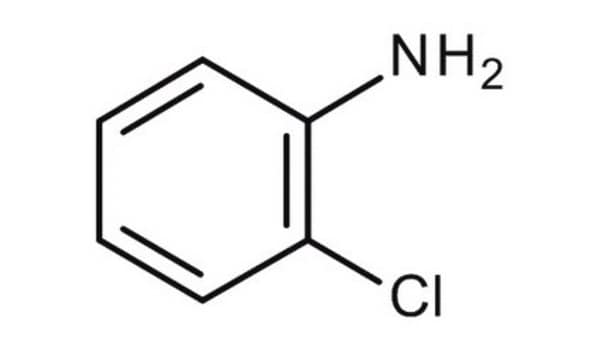8.05791
Mesityl oxide
for synthesis
Synonym(s):
Mesityl oxide, Isopropylideneacetone, 4-Methyl-3-penten-2-one
About This Item
Recommended Products
vapor pressure
10.5 hPa ( 20 °C)
Quality Level
form
liquid
autoignition temp.
344 °C
potency
1120 mg/kg LD50, oral (Rat)
5150 mg/kg LD50, skin (Rabbit)
expl. lim.
1.4-10.1 % (v/v)
bp
130 °C/1013 hPa
mp
-59 °C
transition temp
flash point 28 °C
density
0.85 g/cm3 at 20 °C
storage temp.
2-30°C
InChI
1S/C6H10O/c1-5(2)4-6(3)7/h4H,1-3H3
InChI key
SHOJXDKTYKFBRD-UHFFFAOYSA-N
Application
- Nanomaterial synthesis: Mesityl oxide is employed in the chemical reactivity studies of the tryptophan/acetone/DMSO triad system, highlighting its potential applications in the innovative synthesis of nanomaterials, advancing green chemistry initiatives (Huang et al., 2023).
- Electrode modification for residue detection: Utilized in the detection of residual 2-Phenylphenol on lemon rind, mesityl oxide served as a solvent in the electrochemical deposition of polymeric stackings, illustrating its utility in enhancing analytical methods in food safety (Kiss et al., 2022).
- Organic sensing media: Mesityl oxide was a key solvent in the anodic polymerization process for sensing phenols, indicating its effective use in the development of sensing layers for environmental monitoring (Kiss et al., 2022).
- Pharmaceutical product quality control: Mesityl oxide is instrumental in the determination of acetone and related impurities in drug product intermediates, showing its critical role in ensuring pharmaceutical quality and compliance (Quirk et al., 2014).
Analysis Note
a-Mesityl oxide (GC, area%): ≥ 85.0 % (a/a)
Density (d 20 °C/ 4 °C): 0.853 - 0.856
Identity (IR): passes test
Signal Word
Danger
Hazard Statements
Precautionary Statements
Hazard Classifications
Acute Tox. 3 Inhalation - Acute Tox. 4 Dermal - Acute Tox. 4 Oral - Eye Irrit. 2 - Flam. Liq. 3 - Skin Irrit. 2 - STOT SE 3
Target Organs
Respiratory system
Storage Class Code
3 - Flammable liquids
WGK
WGK 1
Flash Point(F)
87.8 °F - closed cup
Flash Point(C)
31 °C - closed cup
Certificates of Analysis (COA)
Search for Certificates of Analysis (COA) by entering the products Lot/Batch Number. Lot and Batch Numbers can be found on a product’s label following the words ‘Lot’ or ‘Batch’.
Already Own This Product?
Find documentation for the products that you have recently purchased in the Document Library.
Customers Also Viewed
Our team of scientists has experience in all areas of research including Life Science, Material Science, Chemical Synthesis, Chromatography, Analytical and many others.
Contact Technical Service












